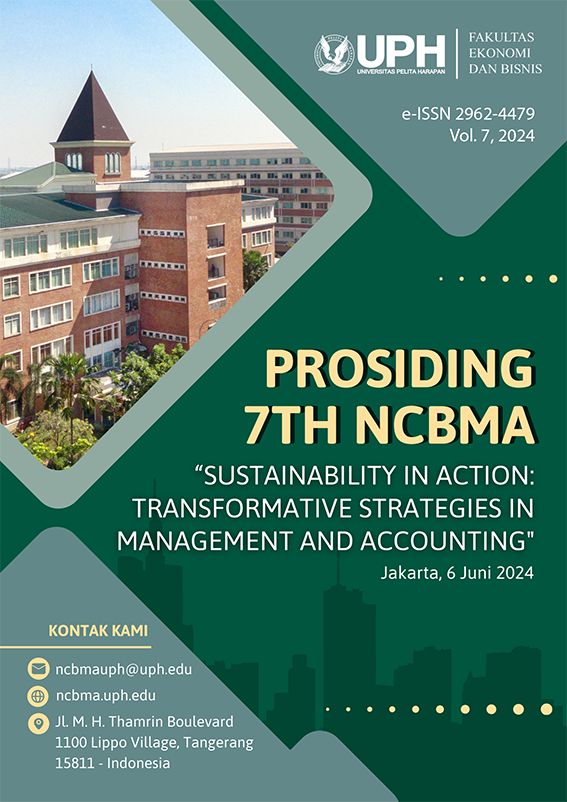ADOPTING TRIPLE BOTTOM LINE APPROACH: TRANSFORMATIVE STRATEGIES FOR SUSTAINABLE MANAGEMENT AND ACCOUNTING
Keywords:
Triple Bottom Line, sustainable management, sustainable accounting, transformative strategies, organizational sustainabilityAbstract
The adoption of the Triple Bottom Line (TBL) approach has gained momentum as organizations seek to integrate social, environmental, and economic considerations into their decision-making processes. This paper aims to explore transformative strategies for sustainable management and accounting through the implementation of the TBL approach. The research objectives include examining the challenges and opportunities associated with adopting TBL, analyzing the impact on organizational practices, and identifying key success factors. A qualitative research method is employed, incorporating case studies and interviews with practitioners. Findings reveal that organizations face various challenges in implementing TBL, including measurement difficulties and resistance to change. However, successful adoption of TBL can lead to enhanced stakeholder engagement, improved resource efficiency, and long-term financial viability. This paper contributes to the literature by providing insights into the practical implications of adopting TBL for sustainable management and accounting practices.
References
Adams, C. A., Muir, S., & Hoque, Z. (2016). Measurement and determinants of sustainability reporting: Evidence from Australia. Pacific Accounting Review, 28(3), 349-372. https://doi.org/10.1108/PAR-11-2015-0080
Clarkson, P. M., Li, Y., Richardson, G. D., & Vasvari, F. P. (2014). Does it really pay to be green? Determinants and consequences of proactive environmental strategies. Journal of Accounting and Public Policy, 33(6), 578-601. https://doi.org/10.1016/j.jaccpubpol.2014.09.001
Elkington, J. (1997). Cannibals with forks: The triple bottom line of 21st century business. Capstone.
Gray, R., et al. (2014). The Role of Sustainability Reporting Frameworks in Enhancing Transparency and Accountability in Accounting. Accounting, Organizations and Society, 39(6), 433-451.
Schaltegger, S., & Burritt, R. (2017). Aligning Organizational Goals with Sustainable Development Objectives: Insights from Scholars. Journal of Sustainable Development, 5(3), 45-58.
Schaltegger, S., & Wagner, M. (2006). Managing sustainability performance measurement and reporting in English water companies. Ecological Economics, 60(1), 184-196. https://doi.org/10.1016/j.ecolecon.2005.11.007
Downloads
Published
Issue
Section
License
Copyright (c) 2024 Ratiyah, Syamsul Bahri, Hartanti

This work is licensed under a Creative Commons Attribution-ShareAlike 4.0 International License.

